Filter by
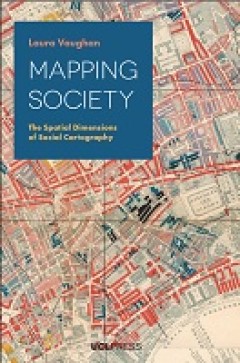
Mapping society : the spatial dimensions of social cartography
From a rare map of yellow fever in eighteenth-century New York, to Charles Booth’s famous maps of poverty in nineteenth-century London, an Italian racial zoning map of early twentieth-century Asmara, to a map of wealth disparities in the banlieues of twenty-first-century Paris, Mapping Society traces the evolution of social cartography over the past two centuries. In this richly illustrated b…
- Edition
- 25
- ISBN/ISSN
- 9781787353053
- Collation
- xix, 268p.; ill.
- Series Title
- -
- Call Number
- 526 MAP v
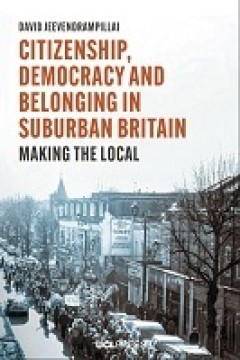
Citizenship, democracy and belonging in suburban Britain : making the local
A study of the conditions of being a citizen, belonging and democracy in suburban Britain, this book focuses on understanding how a community takes on the social responsibility and pressures of being a good citizen through what they call ‘stupid’ events, festivals and parades. Building a community is perceived to be an important and necessary act to enable resilience against the perceived t…
- Edition
- 9
- ISBN/ISSN
- 9781800080539
- Collation
- xvii, 210p.
- Series Title
- -
- Call Number
- 323.60941 CIT j
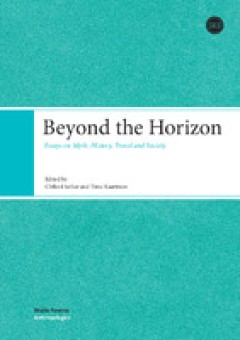
Beyond the Horizon : Essays on Myth, History, Travel and Society
Society is never just a localized aggregate of people but exists by virtue of its members’ narrative and conceptual awareness of other times and places. In Jukka Siikala’s work this idea evolves into a broad ethnographic and theoretical interest in worlds beyond the horizon, in the double sense of “past” and “abroad.” This book is a tribute to Jukka’s contributions to anthropology…
- Edition
- -
- ISBN/ISSN
- 9789518580693
- Collation
- 243 p.
- Series Title
- -
- Call Number
- 301 BEY T
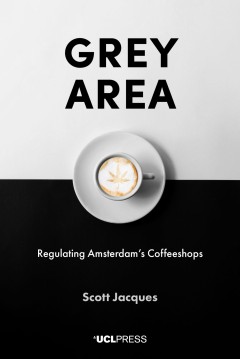
Grey Area : Regulating Amsterdam’s Coffeeshops
Coffeeshops are the most famous example of Dutch tolerance. But in fact, these cannabis distributors are highly regulated. Coffeeshops are permitted to break the law, but not the rules. On the premises, there cannot be minors, hard drugs or more than 500 grams. Nor can a coffeeshop advertise, cause nuisance or sell over five grams to a person in a day. These rules are enforced by surprise polic…
- Edition
- -
- ISBN/ISSN
- 9781787355910
- Collation
- xix, 186 p.
- Series Title
- -
- Call Number
- 362.29509492352 GRE S
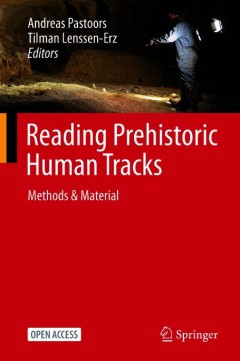
Reading Prehistoric Human Tracks : Methods & Material
This Open Access book explains that after long periods of prehistoric research in which the importance of the archaeological as well as the natural context of rock art has been constantly underestimated, research has now begun to take this context into focus for documentation, analysis, interpretation and understanding. Human footprints are prominent among the long-time under-researched feature…
- Edition
- -
- ISBN/ISSN
- 9783030604066
- Collation
- xiii, 436 p.
- Series Title
- -
- Call Number
- 569.9 REA A
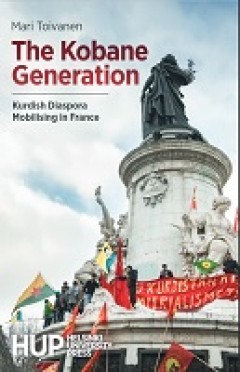
The Kobane Generation : Kurdish Diaspora Mobilising in France
A small Kurdish city located in northern Syria, Kobane, became symbolically significant when ISIS laid siege to the city between September 2014 and January 2015. This pivotal moment in the fight against ISIS threw the international spotlight on the Kurds. The Kobane Generation analyses how Kurdish diaspora communities mobilised in France after the breakout of the Syrian civil war and political …
- Edition
- 3
- ISBN/ISSN
- 9789523690431
- Collation
- ix, 294p.
- Series Title
- -
- Call Number
- 305.89159704 KOB t
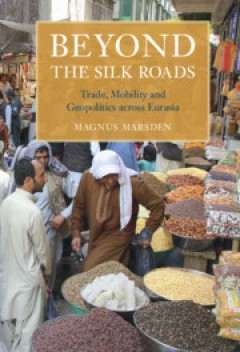
Beyond the silk roads : trade, mobility and geopolitics across Eurasia
Small-scale traders play a crucial role in forging Asian connectivity, forming networks and informal institutions separate from those driven by nation-states, such as China's Belt and Road Initiative. This ambitious study provides a unique insight into the lives of the mobile traders from Afghanistan who traverse Eurasia. Reflecting on over a decade of intensive ethnographic fieldwork, Magnus M…
- Edition
- -
- ISBN/ISSN
- 9781108974387
- Collation
- xiii, 289.; ill.
- Series Title
- -
- Call Number
- 382.095 MAR b
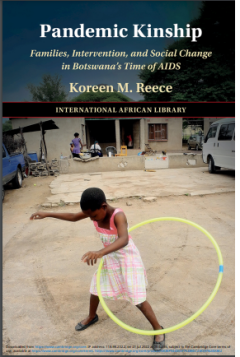
Pandemic Kinship : Families, Intervention, and Social Change in Botswana's Ti…
Shaped around the stories of one extended family, their friends, neighbours, and community, Pandemic Kinship provides an intimate portrait of everyday life in Botswana's time of AIDS. It challenges assumptions about a 'crisis of care' unfolding in the wake of the pandemic, showing that care - like other aspects of Tswana kinship - is routinely in crisis, and that the creative ways families navi…
- Edition
- -
- ISBN/ISSN
- 9781009150200
- Collation
- xiii, 328p, : ill
- Series Title
- -
- Call Number
- 306.85096883 KOR
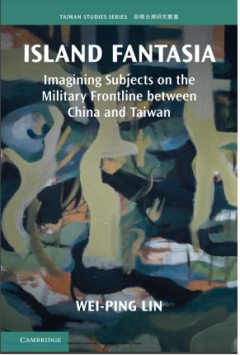
Island Fantasia
The Matsu archipelago between China and Taiwan, for long an isolated outpost off southeast China, was suddenly transformed into a military frontline in 1949 by the Cold War and the Communist-Nationalist conflict. The army occupied the islands, commencing more than 40 long years of military rule. With the lifting of martial law in 1992, the people were confronted with the question of how to move…
- Edition
- -
- ISBN/ISSN
- 9781009023481
- Collation
- xvii, 330p, ill
- Series Title
- -
- Call Number
- 951.249 WEI
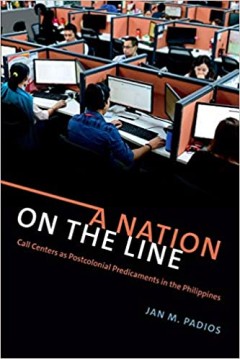
A nation on the line: call centers as postcolonial predicaments in the Philip…
A NATION ON THE LINE is an ethnographic study of the call center industry in the Philippines and of its workforce composed of young, largely college-educated Filipinos. Padios merges several lines of inquiry about Pacific transnationalism, about the role of affective labor in global markets, and about critique of Filipino exploitation by the United States through economic and military power sin…
- Edition
- -
- ISBN/ISSN
- 9780822371984
- Collation
- xiv, 232 p.
- Series Title
- -
- Call Number
- 384.64 JAN a
 Computer Science, Information & General Works
Computer Science, Information & General Works  Philosophy & Psychology
Philosophy & Psychology  Religion
Religion  Social Sciences
Social Sciences  Language
Language  Pure Science
Pure Science  Applied Sciences
Applied Sciences  Art & Recreation
Art & Recreation  Literature
Literature  History & Geography
History & Geography